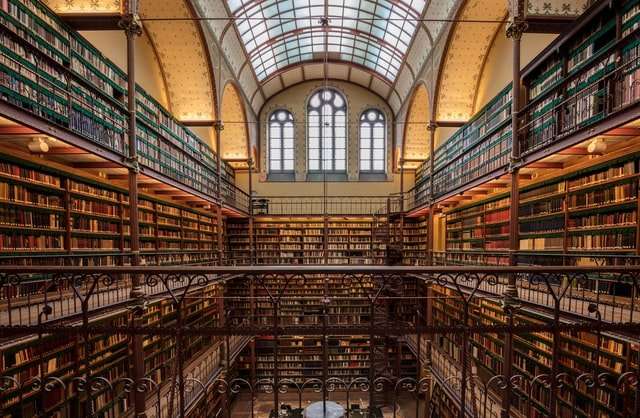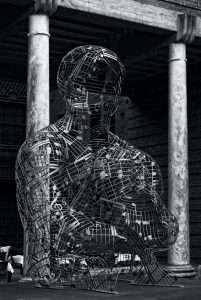Why study the humanities, and in particular AP Literature and Composition? This is a question I am asked frequently. Here is my answer.
You learn how to think deeply, to ask questions, to develop your own opinions and engage with new ideas. You learn how to write (and write well). You learn how to analyze texts. You are exposed to the voices of great minds from all around the world and throughout history. Your writing becomes more sophisticated, your reading more insightful, your thinking more precise and complex. You become a better writer of the very essay you are currently reading this blog post in order to learn about the benefits of being an AP Literature and Composition student.
There are many important skills that AP Literature and Composition gives you, but it’s not just about listening to lectures or reading some books. It’s about being able to do so with a critical eye and an inquiring mind, being able to engage with what you hear or read critically and analytically.
The canon of works we read in AP Lit is not simply a list of great works of literature or historical figures that were important at one time in history and no longer really matter now. They remain important because they offer us a glimpse into other worlds through another time, through an
The blog is designed to provide you with information about the benefits of AP Literature and Composition, the skills you can develop by taking the course, and strategies for success.
Information:Taking AP Literature will give you a greater appreciation for literature, as well as an understanding of the many different ways authors use language to express their ideas in different time periods and cultures. The course also provides an opportunity for students to improve their critical reading, analytical writing, and research skills.
[‘The reading list is dominated by male authors; only 10 of the 47 books are by female authors and there are no books by African American or Latino writers.’]
Also, according to College Board’s own data, students that take AP Lit have an average SAT score of 615 (out of 800), whereas students that take no AP classes have an average SAT score of just 577. This is evidence that AP Lit helps students do better on standardized tests.
[The site] discusses various types of poetry, prose, drama, and hybrid forms as well as providing useful resources such as sample essays and annotated bibliographies.
The field of humanities is the study of everything that isn’t math or science. The theory is that reading literature, studying history and philosophy, and getting a broad education are useful to everyone.
Now, looking at it from an outsider’s perspective, I have to admit that I thought the same way many of you did. “Those classes are useless.” But as I continued through my first semester of high school, I began to see the importance of humanities courses for both students and teachers.
My Perspective on the Humanities
To begin with, what is humanities? It includes English classes including AP Language and Composition and AP Literature classes. It also includes History classes including World History and US History. Languages such as Latin are also part of humanities because they aren’t considered hard sciences by many people. Other subjects like Philosophy and Psychology are also included in humanities. In total, things like literature, history, philosophy, science fiction/fantasy, languages, and even art all fall under this category.
The Importance of Broadening Your Mind
It can be easy to look at these subjects as a waste of time since they aren’t necessarily related to your main coursework in math or science. However, most students will tell you that taking these classes has broadened their
In this blog I will discuss how taking Advanced Placement English Literature and Composition courses can benefit students in all other classes, as well as how it can benefit the students themselves.
I will share essays I read in my AP Lit classes, both to demonstrate what good AP Lit essays look like (and therefore what they should be aiming to do) and also to encourage teachers to use a wider range of texts in their other classes.
I will also share my own writing in both AP Lit and some of my other classes. Hopefully this will show that there is not only one way to write an essay, and that writing well is not dependent on simply being told “this is how you write an essay” but rather having an example from which to work.
The AP English Literature and Composition course is designed to prepare students for college composition courses. The course emphasizes the reading, analysis, and informed writing of literary texts but also includes a range of other literary art forms including drama, film, and poetry. Students learn to compose a variety of persuasive and analytical essays as well as to read and evaluate a range of texts. Students also have the opportunity to work collaboratively on in-class projects.
Dictionaries, encyclopedias, books, magazines and newspapers are all sources used when writing research papers. Each source contains differently formatted information that must be cited correctly in order to avoid plagiarism. For example, if you found a statistic in an encyclopedia or in a book you would cite each source differently.
This is one of the most comprehensive guides because it not only discusses what plagiarism is but also explains how to properly use footnotes and endnotes in your research paper.
Cultural criticism, as I have argued elsewhere, is a vital part of the humanities. I do not mean here to argue in favor of any particular cultural critic or any particular argument. Rather, I wish to defend the idea that we cannot understand human beings without understanding our cultures and the ways in which one culture may differ from another; for instance, if we are to judge whether war is ever justifiable, we must understand those cultures that do engage in war and the reasons they offer for their actions.
I hope you will agree that cultural criticism is an indispensable part of a liberal arts education. The problem with many works of cultural criticism is that they often seem inaccessible because they make use of jargon unfamiliar to many students. A general trend in the humanities over the past several decades has been the specialization of knowledge; this has led to a proliferation of academic fields, each with its own technical vocabulary.
To know about art, it is not enough to read books about art history; you also need to read books about psychology, physiology and neuroscience (to learn about perception); you need to read books about economics (to learn about production); you need to read books about sociology (to learn about class relations) and you need to read philosophy (to learn how aesthetics relates to ethics
Neil Gaiman has written that the best way to get started and finish writing a book is by writing a book that isn’t the one you want to write. You start with a small, achievable goal—a short story, a novella, a novel—and then you write. As you write, you learn to write better. You work on your characters and your plot, and your writing gets better. Then you revise what you’ve already written, because it’s easier to see how to improve a draft than a blank page. And then you do it again.
Not only does this method help you finish writing a book, but it helps you get better at writing in general. It’s not just about producing more words—it’s about getting used to how stories work so that even before you’re done with your first draft, the beginning of your next book is starting to form in your mind.
Because The Sandman wasn’t exactly the book that Neil Gaiman wanted to write either. The Sandman grew out of a conversation he had with his then-girlfriend (now wife), where he told her that he’d like to make comics for DC Comics. She asked him why he would want to do something so silly when he could be making his own comics


